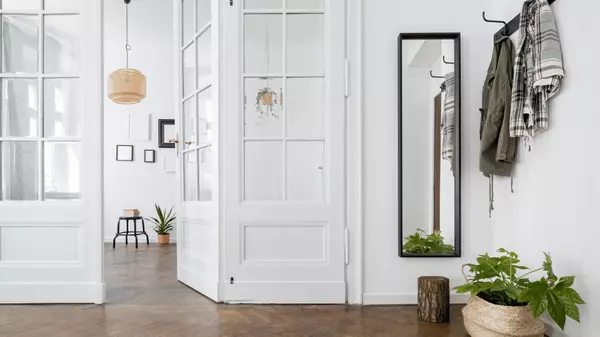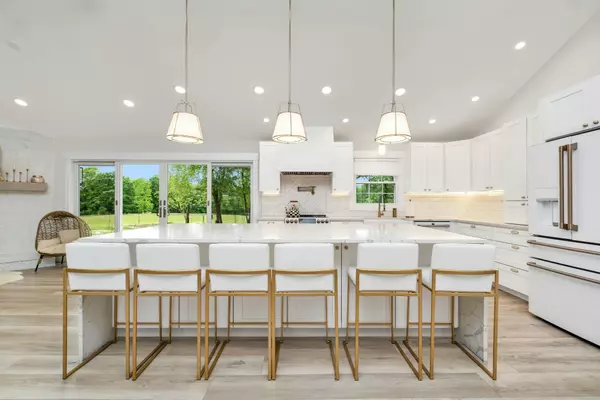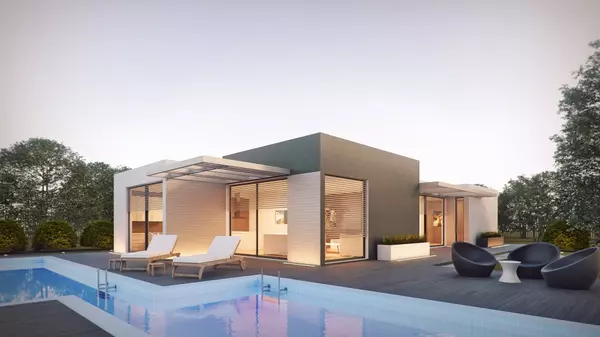
Worried About Home Maintenance Costs? Consider This
If one of the main reasons you’re hesitant to buy a home is because you’re worried about the upkeep, here’s some information you may find interesting on both new home construction and existing homes (a home that’s been lived in by a previous owner). Newly Built Homes Need Less Upfront Maintenance If you can afford it, you may find a newly built home could help ease your worries about maintenance costs. Think about it, if everything in the house is brand new, it won’t have the wear and tear you may see in an existing home – and that means it’s less likely to need repairs. As LendingTree says: “Since the systems, appliances, roof and foundation are new, you’re less likely to pay for major or minor repairs within the first few years of homeownership. That can make a big difference for first-time homebuyers who are adjusting to owning rather than renting.” Plus, many builders also have warranties on their homes that would cover some of the more major expenses that could pop up. As First American explains: “The new systems in your home, like plumbing, electrical, and HVAC, are typically covered for one to two years by your builder’s warranty. When something happens to these systems, you contact the builder or their warranty company.” Existing Homes Can Still Have Great Perks But it’s worth mentioning, that it’s not just newly built homes that can have warranties. It’s an option for existing homes too. Your agent may be able to help you negotiate with the seller to add one as a concession on your contract. But you should know that not all sellers will be willing to do that. If they won’t, you could purchase one yourself, if you’d like to. An article from Forbes explains: “During a real estate transaction, a home warranty policy can be purchased by the buyer or the seller.” And there are benefits for both parties when it comes to a home warranty. According to MarketWatch: “A buyer’s home warranty benefits both buyers and sellers, as it helps the seller close the deal while providing the future homeowner with peace of mind that they’ll be covered if a system or appliance breaks down . . . Sometimes, a seller will pay for the first year of the home buyer’s warranty to sweeten the deal, but it depends on the real estate market.” If you’re interested in a home warranty for peace of mind, lean on your agent. They’ll negotiate on your behalf to see if a seller would be willing to cover one for you. Just remember, the likelihood of a seller throwing one in depends on conditions in your local market. So, Should I Buy New or Existing? While the need for less upfront maintenance is a great perk for new construction, there are some things a newly built home can’t provide that an existing home can. For example, existing homes have a lot of character and charm that’s difficult to reproduce. The quirks that come with an older home may make it feel more homey. And, existing homes usually have more developed landscaping and a well-established sense of community. So, it can feel more inviting than something that’s a blank slate, like new construction often is. Not to mention, if you go with new construction, you may have to wait for the home to finish being built based on where it is in the process. It all depends on what’s most important to you. Whether you choose a newly built or an existing home, you may be able to ease some of your concerns over maintenance with a home warranty. To weigh your options and go over what’s the top priority for you, talk to the professionals.

5 Steps for Preparing Your House for Sale
With prices as high as they are in Orange County, buyers want move-in ready homes. For example, two homes with almost identical floor plans recently sold in my neighborhood with a whopping $100,000+ difference between them. One of these homes, although in relatively decent condition, still had the original kitchen in it. I wouldn’t describe it as a fixer-upper, but it could have used some TLC. It was exactly what you would expect from a “typical” home. The other, was highly upgraded with beautiful renovations, but certainly not $100,000 in renovations… The point is, that the kind of buyers looking to spend almost $1 million dollars for a house will place a premium on homes that are move-in ready. They are also likely to place a pretty steep discount on anything less than move-in ready. It’s important to keep this in mind when preparing your house for sale. So, here are 5 steps you can take when preparing your house for sale that will help make it move-in ready. 1. Start With a Home Inspection Your buyers are most likely going to get their own home inspection. You can take a proactive measure by arranging your own pre-sale home inspection as you are preparing your house for sale. This will allow you to catch any potential problems that a buyer might baulk at early. You can even use this to your advantage by showing it to potential buyers and pointing out items that you have already fixed. You can also use the pre-sale home inspection as leverage when you have multiple offers, requesting buyers to commit to NOT asking for certain repairs or even making a non-contingent offer. 2. Get Estimates for Repairing Certain Items There may be repairs that you either know are needed, or that the inspection turns up. Either way, if you can’t afford to make the repairs yourself, you should at least get some cost estimates for these repairs. You can show the estimates to potential buyers so that they can make their offers accordingly. You may also want to track down any user manuals, warranties, or guarantees that go with appliances and machinery that are being included in the sale. 3. Complete any Minor Repairs When Preparing Your House For Sale Many repairs won’t cost a lot, but left untended to can be very noticeable. Things like ripped screens, sticking doors, cracked calking, or plumbing drips are usually easy to fix. These small repairs also make the home look and feel well-maintained, but, if left un-repaired would give the impression that the home has a lot of deferred maintenance. 4. De-Clutter, De-Clutter, De-Clutter Clutter is the enemy of making a good impression and preparing your house for sale. I’ve heard many owners and agents baulk at the notion that de-cluttering your home is necessary. They say things like “The stuff in my house that will be leaving with me doesn’t affect the value at all!” Well, technically that may be true, but it definitely affects the impression you leave on buyers, which directly affects the offers they make, which directly affects the price you ultimately get. Remember, the TRUE value of your home is ultimately dictated by what a buyer is willing to pay for it! That being said, you should de-clutter and de-personalize as much as you can. As silly as it may sound, try to make your house look as little like a real person’s home, and as much like an IKEA catalogue as possible. Remove about a third of your furniture (put it in storage), remove shelves of knick-knacks, try to eliminate family photos in favor of generic pictures and art. Remove stuff from closets, use organizers to make everything look neat and tidy. Then, with whatever is left, stage your home so that it looks as visually open and appealing as possible. 5. Do a Deep Clean Cleanliness is next to godliness. Make sure your house is clean from top to bottom, and pay attention to the details. If your home is thoroughly clean, it will make buyers feel like your house has been thoroughly cared for. How clean should it be? Mind the details! Wash all of the fingerprints off of the light switches, dust the shelves, behind and underneath decorations, wash all windows inside and out, take light fixtures apart and wash them, clean the baseboards, wash the scuffs and marks off the walls, and anything else you can possibly think of. Definitely shampoo the carpets and mop the floors. Then, after everything is clean, keep it clean! Your house may be on the market for a few weeks before attaining a buyer, and showings can come up unexpectedly. You’ve already worked so hard preparing your house for sale, do your best to keep it in showing condition until it’s sold.

The Perks of Buying over Renting
Thinking about buying a home? While today’s mortgage rates might seem a bit intimidating, here are two solid reasons why, if you’re ready and able, it could still be a smart move to get your own place. 1. Home Values Typically Go Up Over Time There’s been some confusion over the past year or so about which way home prices are headed. Make no mistake, nationally they’re still going up. In fact, over the long-term, home prices almost always go up (see graph below): Using data from the Federal Reserve (the Fed), you can see the overall trend is home prices have climbed steadily for the past 60 years. There was an exception during the 2008 housing crash when prices didn’t follow the normal pattern, but generally, home values kept rising. This is a big reason why buying a home can be better than renting. As prices go up and you pay down your mortgage, you build equity. Over time, this growing equity can really increase your net worth. The Urban Institute says: “Homeownership is critical for wealth building and financial stability.” 2. Rent Keeps Rising in the Long Run Here’s another reason you may want to think about buying a home instead of renting – rent just keeps going up over the years. Sure, it might be cheaper to rent right now in some areas, but every time you renew your lease or sign a new one, you’re likely to feel the squeeze of your rent getting higher. According to data from iProperty Management, rent has been going up pretty consistently for the last 60 years, too (see graph below): So how do you escape the cycle of rising rents? Buying a home with a fixed-rate mortgage helps you stabilize your housing costs and say goodbye to those annoying rent increases. That kind of stability is a big deal. Your housing payments are like an investment, and you’ve got a decision to make. Do you want to invest in yourself or keep paying your landlord? When you own your home, you’re investing in your own future. And even when renting is cheaper, that money you pay every month is gone for good. As Dr. Jessica Lautz, Deputy Chief Economist and VP of Research at the National Association of Realtors (NAR), says: “If a homebuyer is financially stable, able to manage monthly mortgage costs and can handle the associated household maintenance expenses, then it makes sense to purchase a home.”
Categories
Recent Posts










